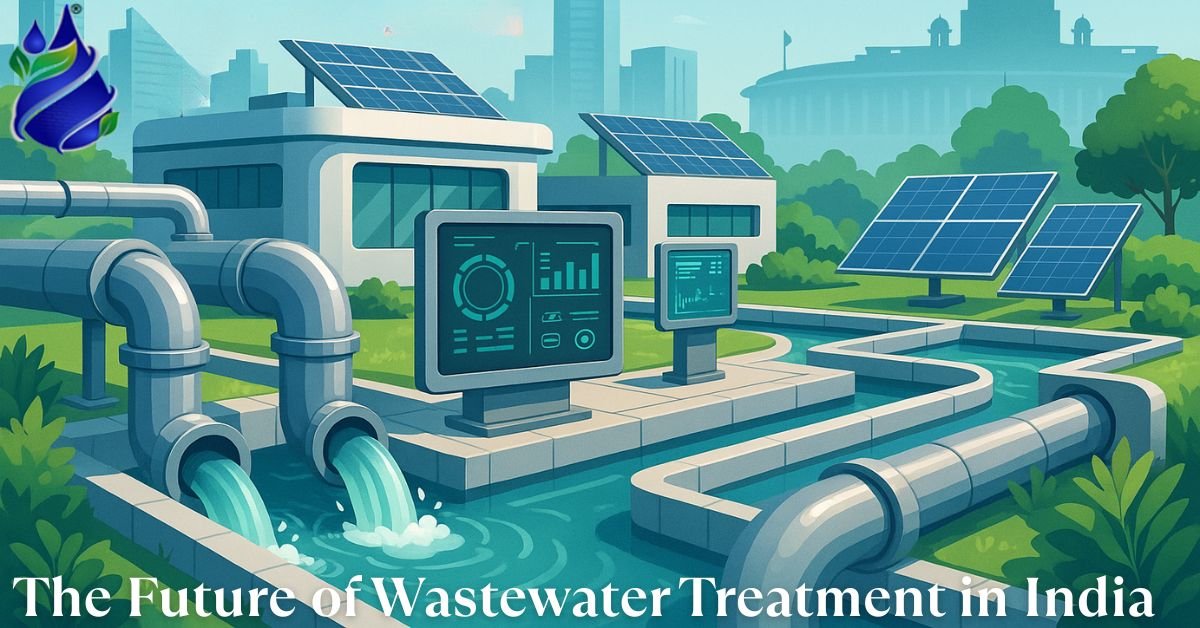
Government Policies Shaping Wastewater Treatment
Wastewater treatment is now given the most importance when it comes to efforts to save water and protect the environment. Strict discharge rules for wastewater are set by environmental law for both homes and factories. Because of these policies, stakeholders are encouraged to select efficient treatment methods. Builder permits are now often linked to requiring the use of recycled and reused wastewater. Consequently, organizations depend less on freshwater and use more sustainable methods.
Concerns about public health are leading to new rules about hygiene at both residential and commercial areas. They require sewage to be handled and treated carefully. Various regulators recommend that treated wastewater can be used for farming, gardening and industry. With this, we can lessen the demand on freshwater supplies. Licensing rules have been updated so industries must use the most advanced treatment technologies. Because of these steps, discharge is improved, and it is also environment friendly.
Emerging Technologies Transforming Wastewater Management
Established technology is an essential in making sewage wastewater treatment work quickly, effectively and economically.
1. Membrane Bioreactors Deliver High-Quality Output- They consist of parts that treat biologically and filter the water. They save floor area and maintain great water quality.
2. Zero Liquid Discharge Systems Enable Full Reuse- They can use almost all the water contained in waste. They reduce the risk to the environment from liquid pollutants.
3. IoT-Based Monitoring Enhances Efficiency- Systems integrated with artificial intelligence observe and report on water rates, pH and contaminants in their current conditions. Their purpose is to encourage early intervention and help save money on energy.
4. Decentralized Treatment Units Serve Remote Areas- Modular systems are located close to the wastewater source. They are perfect for people living in places with little electricity or internet.
5. Anaerobic Digesters Reduce Sludge and Recover Energy- They decay all kinds of organic substances. They reduce waste as much as possible and the waste that remains can be used to create biogas.
Public-Private Partnerships in the Water Sector
Water treatment projects are implemented, monitored, and improved better when governments collab with private companies. Both private companies and government management ensure the use of cutting-edge technologies. They are responsible for designing, setting up, and operating their systems, including biological wastewater treatment wherever applicable. For these partnerships, public services offer the land, obtain the needed clearances, and offer multi-year agreements.
These frameworks help lower financial risks. Government agencies are opting more and more for annuity-based payouts. Because of these models, projects are completed on time. Private players are responsible for their performance in these contracts. As a result, the plant runs smoothly, maintenance is improved, and drinking water is produced more effectively.
Sustainable Wastewater Solutions for Urban and Rural Areas
Specific strategies are required for addressing wastewater based on the environment. We aim to keep the energy industry sustainable and efficient into the future.
1. Urban Settings Use Centralized Treatment Systems- Areas packed with people demand that plants have advanced, fully automated systems to run around the clock and follow regulations.
2. Remote Regions Prefer Decentralized Technologies- Portable, solar-run and container wastewater treatment units are ideal for small and individual communities.
3. Residential Complexes Adopt Compact Solutions- In multi-storey housing, STPs are made to be small, safe from smells and use moderate power for treatment within the buildings.
4. Commercial Spaces Reuse Treated Water Internally- Malls, hotels and office buildings reuse and recycle water for use in toilets, for air conditioning and in their gardens.
5. Industries Use Custom Effluent Treatment Plants- Textiles, chemicals and pharmaceuticals use specialized ways to deal with hazardous and heavy-load wastewater.
Challenges and Opportunities in Wastewater’s Future
Wastewater management encounters problems in its design, technology and finances. Yet, when people think of new ideas and learn more, they can do more with technology. The old equipment affects the way pipes perform. A lot of facilities face problems with old equipment and inadequate maintenance planning. Having few skilled employees reduces the organization’s ability to run smoothly. People often struggle to make full use of new systems because they do not have the needed skills. Not having enough money slows projects for upgrades and expansion. These types of technologies mean that investments and risk management have to be carefully planned out.
Still, these issues do not stop many chances from existing in the industry. Artificial intelligence and predictive analytics help businesses achieve better results in operations. People are becoming more aware of water reuse which supports these activities. Individuals now require solutions that make it easier to follow the rules and stay cost-effective over the long run. The presence of strong policies makes sure governance organisers are accountable for their work. Clear monitoring tools support both strong system operation and effective handling of pollution. Success is largely possible because of innovation from the private sector. Leaders in the industry are creating wastewater treatment designs that are sustainable and can grow and are smart.
Conclusion
Wastewater treatment will progress based on flexible rules and emerging technologies. For water management to be sustainable, people must cooperate, think of new ways and carry out their work responsibly. Trity Enviro Solutions provides full wastewater treatment solutions that meet today’s environmental, technology and policy requirements. Trity has shown, that it can manage projects from planning through maintenance well, so each project meets efficiency and compliance standards.


